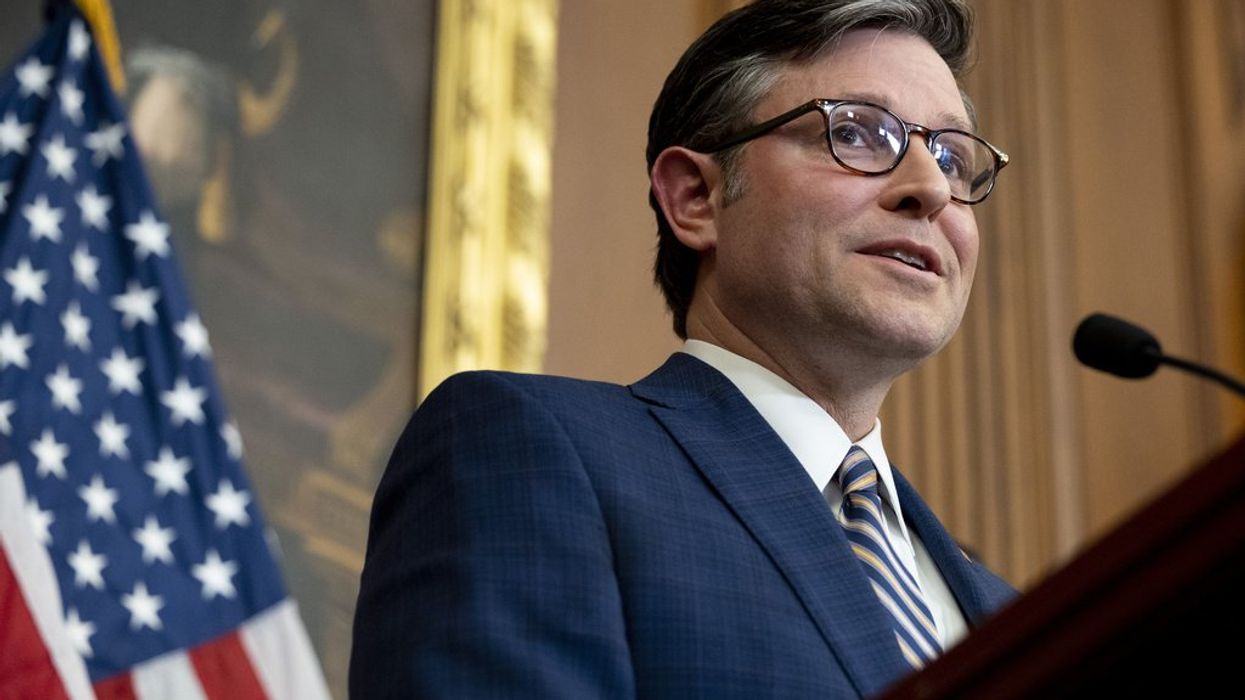Medicaid’s status is up in the air as House Republicans weigh the possibility of slashing the healthcare program for low-income people in order to allow for tax cuts. Those cuts could be a problem for some GOP members, Politico reported Monday.
“A POLITICO review of enrollment in Medicaid by congressional district found that 11 Republicans in competitive seats represent larger-than-average Medicaid populations — collectively nearly 2.7 million recipients. A vote to cut the program presents a politically sensitive decision that may come back to haunt them in 2026,” writes Politico’s Kelly Hooper. About 72 million people nationally are on Medicaid, according to the Centers for Medicare and Medicaid Services.
House Republicans currently have an extremely slim 218-215 majority, meaning House Speaker Mike Johnson's (R-La.) goal of keeping the gavel hinges on midterm election results in a small handful of swing districts nationwide.
READ MORE: 'Insider risk': How DOGE might have revealed CIA secrets
Republicans have been undecided on a bill that would cut Social Security, Medicare and Medicaid in order to pass Trump’s tax cuts, among other items on his wishlist. This proposal comes after Trump promised to “love and cherish” the programs.
“The bulk of these cuts would have to be in Medicaid, and that’s why they’re not going to get the requisite votes they need to get it passed with the margins that they have right now,” Bill Hoagland, senior vice president at the Bipartisan Policy Center and a former GOP Senate Budget Committee staffer, told Politico. “Leaders are going to have a lot of difficulty getting the votes to pass this resolution.”
Rep. Gabe Evans (R-Colo.) Rep. Juan Ciscomani (R-Ariz.), Rep. John James (R-Mich.), Rep. Mike Lawler (R-N.Y.) and Rep. Robert Bresnahan (R-Pa.) all come from competitive districts where about 25% of constituents are on Medicaid. Evans was elected by less than 1 percentage point.
Rep. Nick Begich (R-Alaska) represents a district where nearly a quarter million people are on Medicaid. According to Hooper, "Begich told the Alaska state Legislature on Thursday that the state has become too dependent on federal dollars, and called the government’s current level of spending ‘unsustainable.'"
READ MORE: Social Security hotline interrupted because workers have to 'write their Elon emails': report
Rep. Ken Calvert (R-Calif.) represents a district where 27% of people are on Medicaid. He told Politico that Republicans “are not interested in cutting the social and healthcare safety net for children, disabled, and low-income Americans.”
Rep. Jeff Hurd (R-Colo.) represents a district where 30% of constituents are on Medicaid, while Rep. Dan Newhouse (R-Wash.) has a district where 37% of constituents are on Medicaid. Rep. Eli Crane (R-Ariz.) represents a district where about a third of constituents are on Medicaid. Finally, Rep. David Valadao (R-Calif.) has a district where 62% of constituents are on Medicaid.
Click here to read Hooper's full report in Politico.
READ MORE: GOP already 'chomping at the bit' to cut Social Security, Medicaid and Medicare: analysis


